Talmud Torah hosts commemoration of Martin Luther King Jr. Day
Student, City Council members speak as part of panel
City Council member Nadia Mohamed tells a story about her experiences with race Jan. 15. City Council members and senior Amaya Fokuo spoke to students at Talmud Torah of Minneapolis about Martin Luther King Jr. and his relationship with Jewish leaders.
January 16, 2020
After speaking to families at a Jewish commemoration of Martin Luther King Jr. Day, chairman of the Human Rights Commission and senior Amaya Fokuo said she was invited to speak to share her views on youth activism and relate it to Martin Luther King Jr. Day.
“I worried for a second to the point where I thought it was going to be too dark, but from the response of the parents and the reactions from the students, I felt there was a good connection,” Fokuo said. “People were attentive, as well as students can be, and they really listened and their questions show that they really took an interest.”
According to City Council member Nadia Mohamed, the MLK Jr. Day Panel Discussion was a way to further the allyship between minorities.
“A lot of times, the older generations make promises saying ‘we want to build a better future for the younger generation’ but never makes them part of the process,” Mohamed said. “I don’t understand how you’re supposed to build something for people when they are not part of the conversations. We are making them part of the conversation.”
According to seventh-grader Ari Rose, the event gave him context and ideas for how to act in high school.
“I found it interesting that the women had both gone to St. Louis Park High School and they both had struggles with teachers,” Rose said. “If I see someone being bullied that might be of a different race than I am, I might stand up for them.”
Fokuo said being able to speak for City Council as a student allowed her to involve both students and parents in the discussion.
“As a student, I have one ear in basically for the student aspect, and from this experience working with government I have this more public eye into how things work. I think I was able to bring both groups to the table as well as I can,” Fokuo said.
According to Mohamed, to connect groups of minorities and change society, people must realize how connected everyone is.
“Normal is overrated. It is how we keep the same one size fits all agenda,” Mohamed said. “We all have the same stories, it’s just different where we are coming from and what we want to accomplish, but we all have those similarities and we celebrate our differences. It is as simple as starting up the conversation.”
Before the panel discussion, the seventh and eighth graders partnered up to brainstorm questions and talk about Martin Luther King Jr., according to Rose.
“We are also learning about MLK (in class). It helped us to know that (the panelists) have also had situations that they were not treated fairly by everyone else,” Rose said.
According to Fokuo, the biggest takeaway from the event is people are stronger together and minorities have to push through the separation and work together.
“As minorities, we are the majority, but we are separated by society to be subjected to separation so that we are unable to actually work together because we have so much power,” Fokuo said. “I think the majority sees that and they are afraid of that… it’s important to put your voice out there and find your coconspirators.”



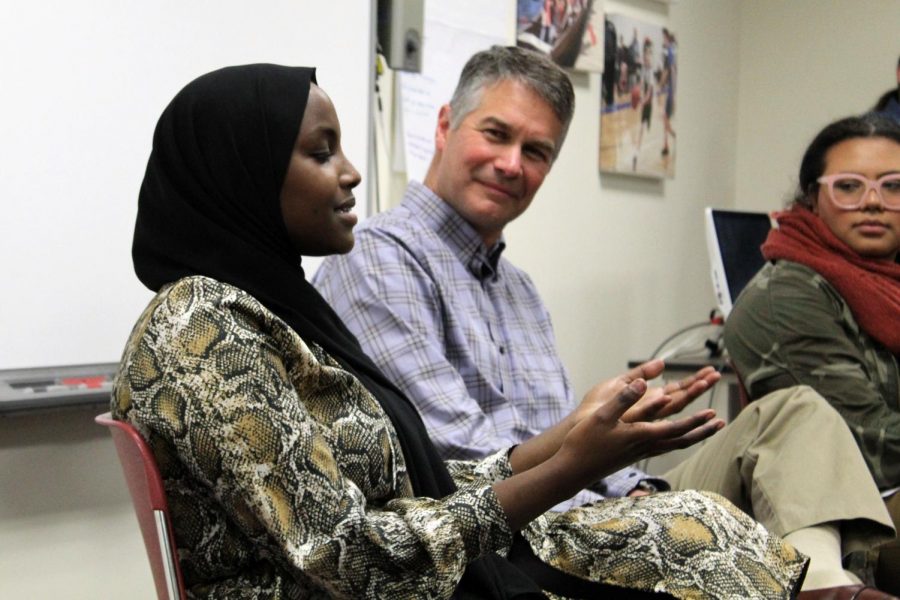
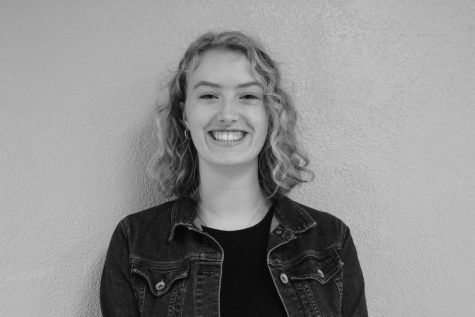


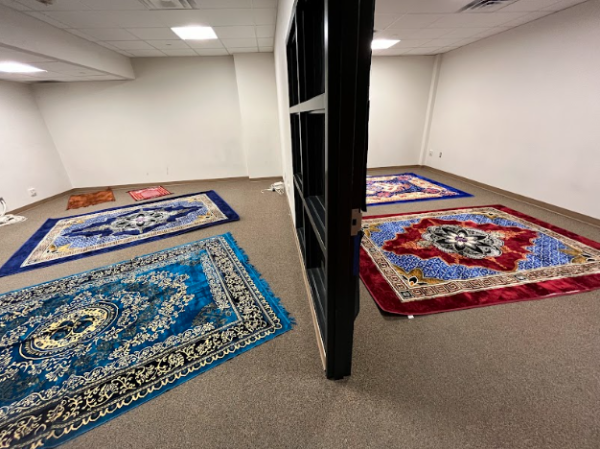

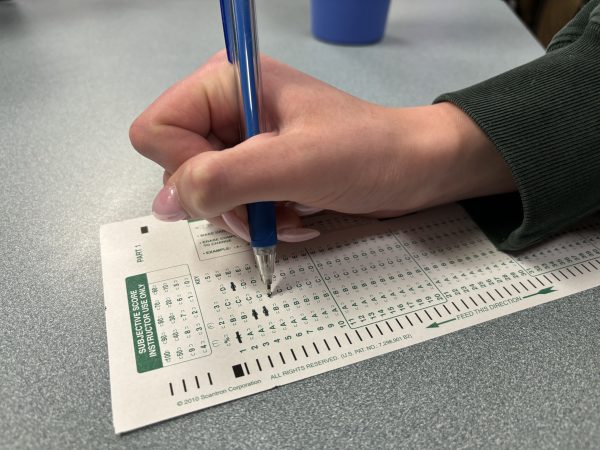
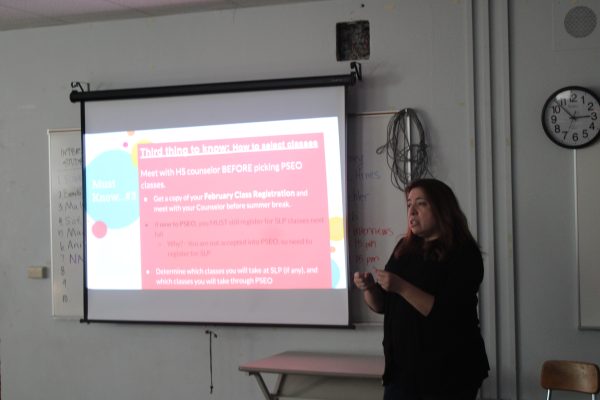
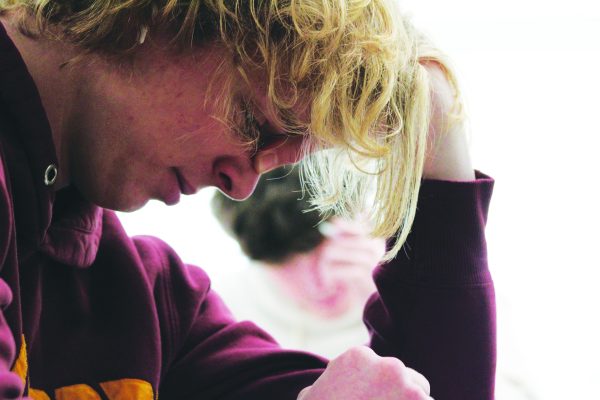
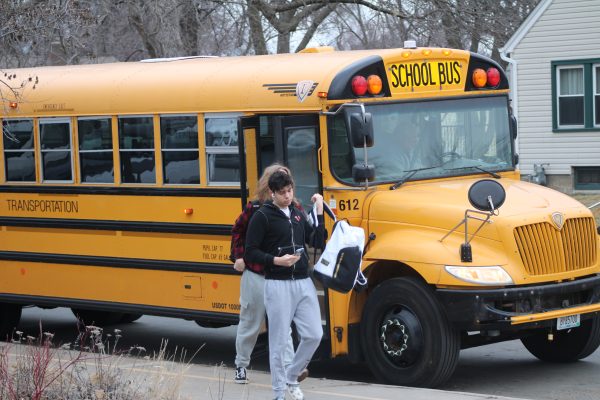
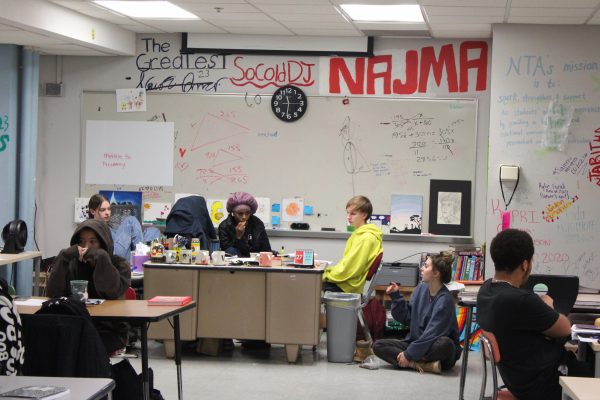
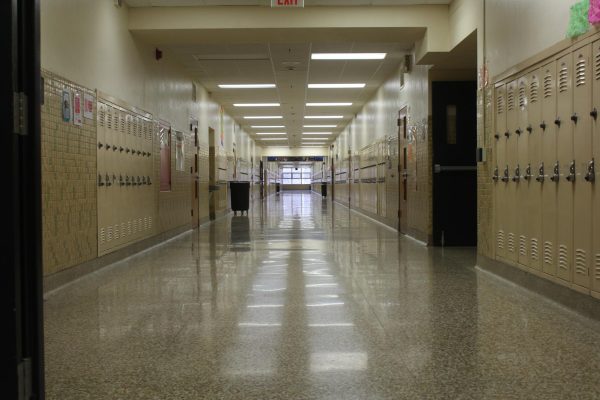
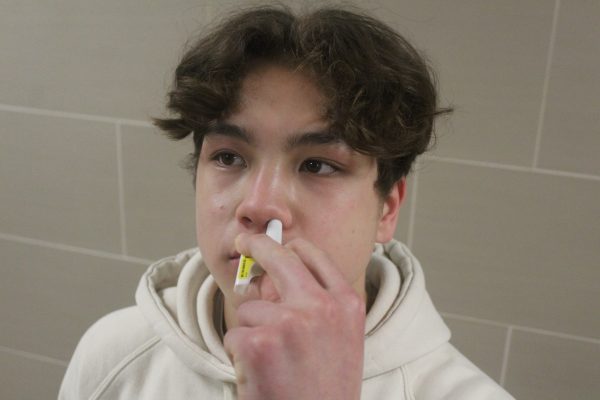
Stephen M Payne • Jan 18, 2020 at 5:51 am
1977 SLP graduate; just wondering when the “Echowan” became the “Echo”?
Marta Hill • Jan 18, 2020 at 6:26 pm
Hello,
Echo, the student-run newspaper, was established in 1916 and has kept its name since. Echowan refers to the school’s yearbook.